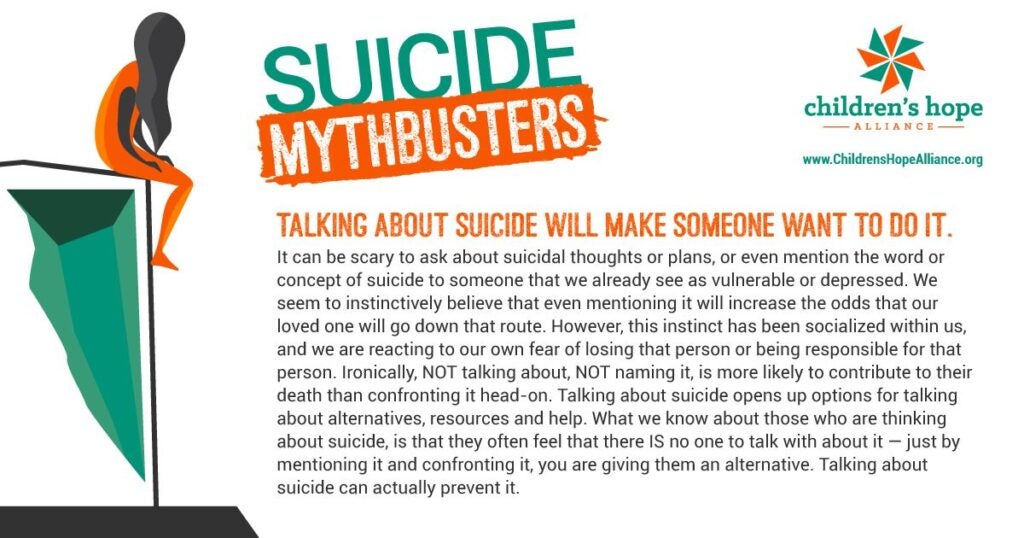Helpful tips on talking about suicide with your child
What do you when you’re worried that your child may be feeling suicidal? Let’s be honest, as children grow older, it can become more challenging for parents to know what they are thinking and feeling. How can you distinguish between normal adolescent angst, and when there’s actual cause for concern? How do you even start the conversation around suicide? If you find yourself asking these questions, you are not alone. Many parents think that talking about suicide will encourage their child to engage in that type of behavior; however, research shows that talking about suicide decreases their risk, reduces the stigma around the topic, and can be a major first step in recovery. Having open, direct, and non-judgmental conversation about the topic is a useful tool in establishing connection, reducing their feelings of isolation, gaining insight into what’s going on, and finding the most appropriate way to help.
Here are some helpful tips for beginning the conversation with your child:
- Choose a time when you can give uninterrupted time and have your child’s full attention. Car rides, for example, can be a great time to start a conversation.
- Ask open-ended questions like,
- “What have you heard about suicide? What do you think about it?”
- “Sometimes kids feel really sad or upset and feel like hurting or killing themselves. Do you ever feel that way?”
- “Do you or your friends ever talk about hurting yourselves, or not wanting to live anymore?”
- Listen and ask relevant follow-up questions. It is important not to lecture or give advice. Allow your child to speak their mind and be prepared for if their answer is “yes.”
- If your child discloses that they have had thoughts, try to remain calm. This is an important opportunity to ask more questions about what was happening when the thoughts occurred, how often the thoughts occur, if they’ve ever acted on their thoughts, or if they have a specific plan.
- Avoid saying things like, “you shouldn’t feel that way” or “don’t think like that,” because even though well-meaning, those statements can come across as critical and accusatory. Instead, practice expressing empathy and validating your child’s feelings with statements such as, “It sounds like you’re really hurting on the inside. I am so glad you told me, thank you. We’re going to get through this together.”
If you are worried that your child may be at risk, do not hesitate to contact your pediatrician to assist you in getting connected with a mental health professional.This blog written by CHA Clinician, School-Based Therapy, Shayla St. James, M.E.d, LCMHC






